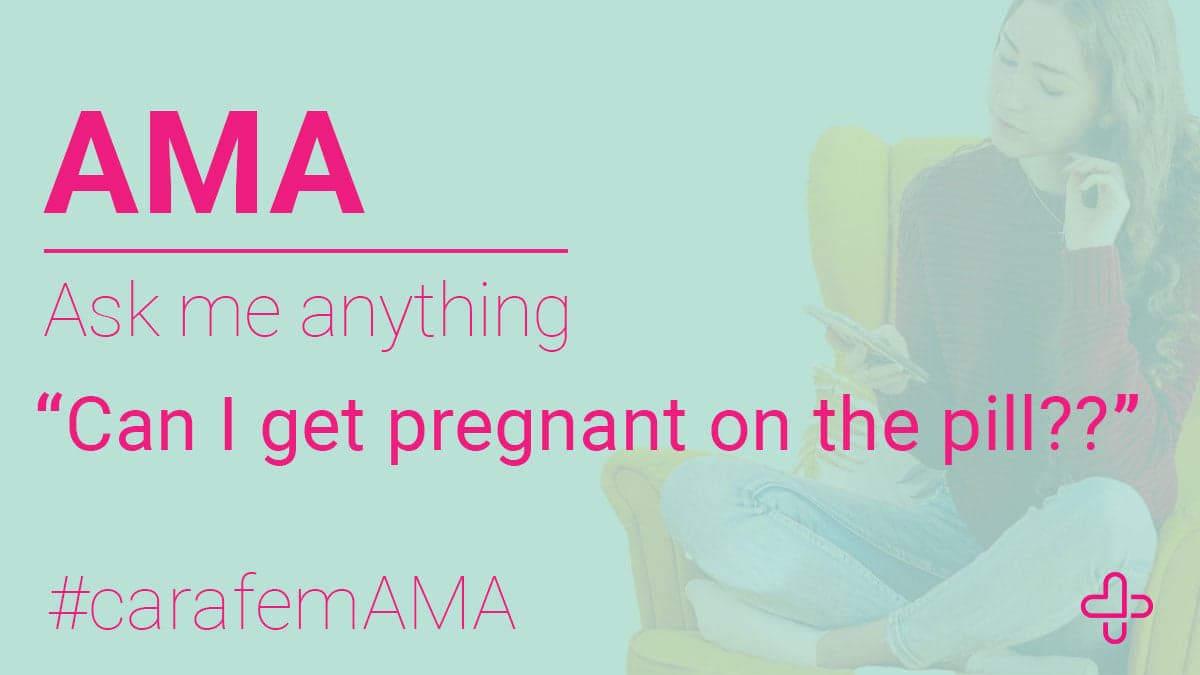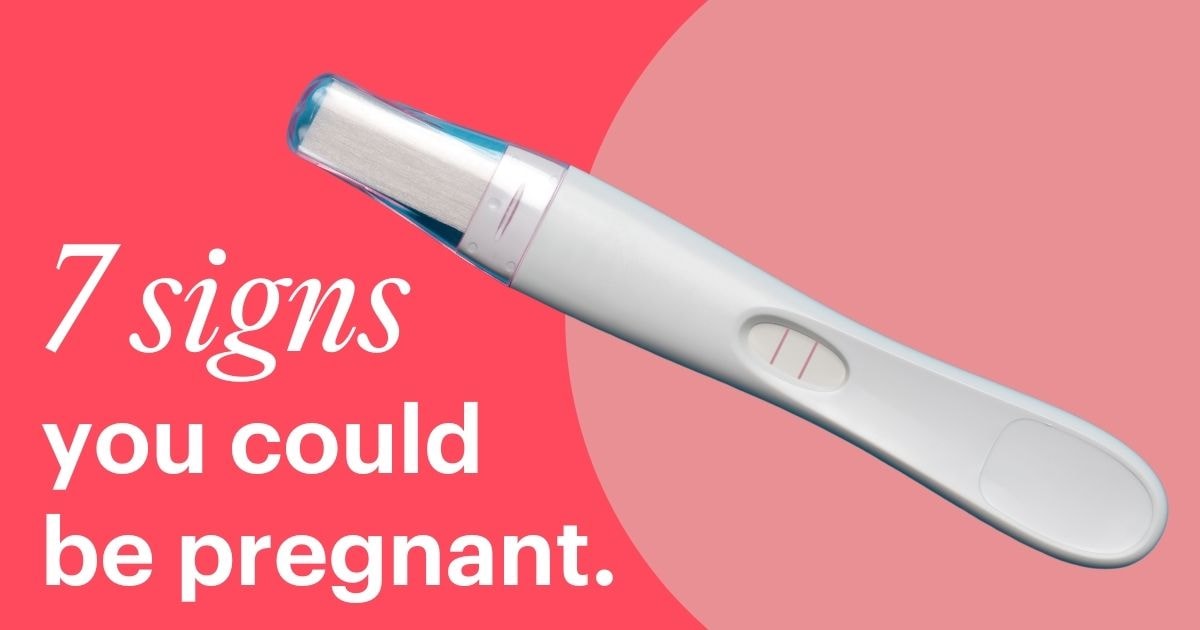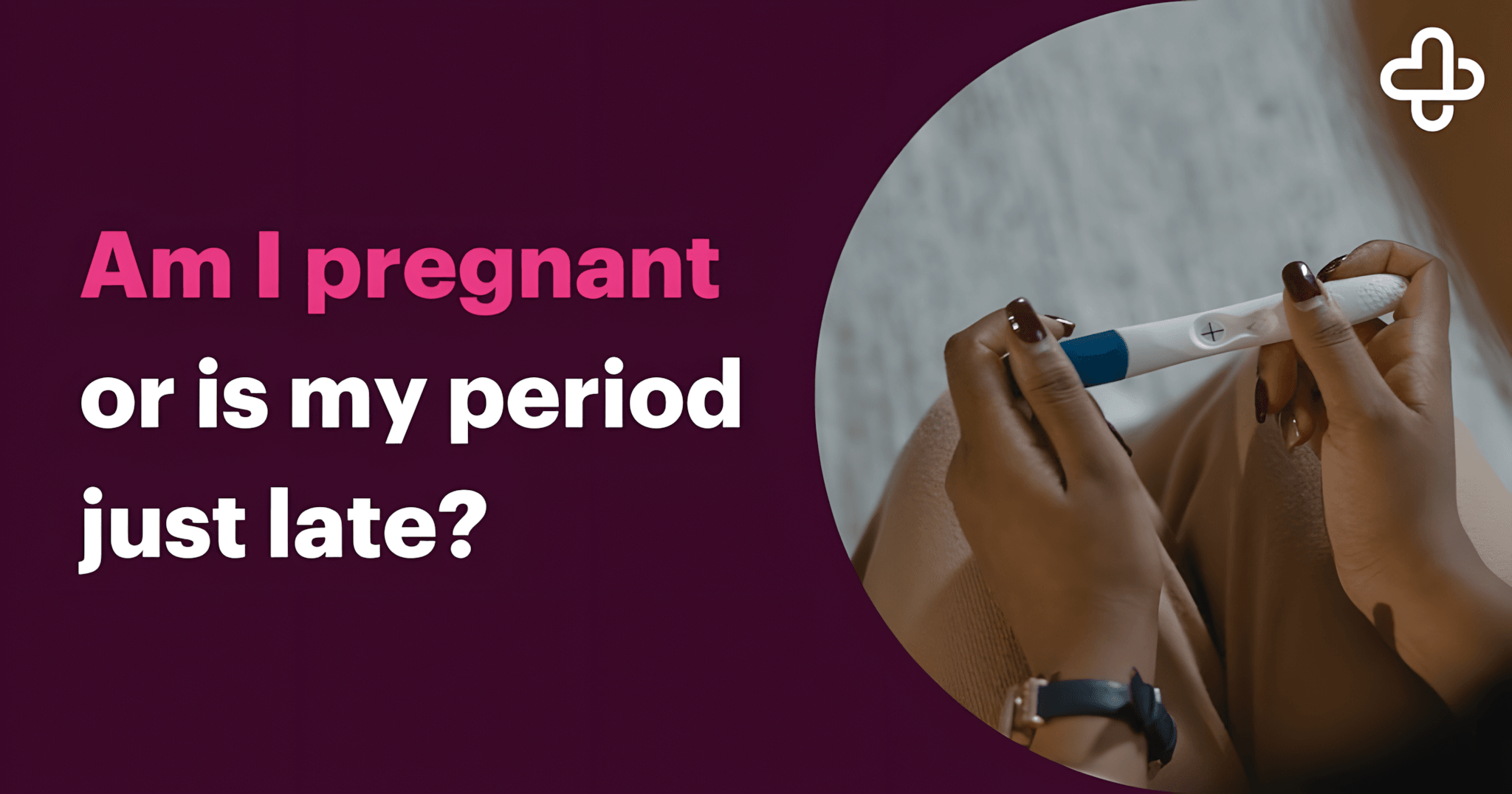Can you get pregnant on the birth control pill? Find out how it can happen.

Ok, imagine you’re on the pill, but you’re at the end of the pack and your period hasn’t started yet...does that mean you might be pregnant? If you’re anything like most people, you might run to the internet and start frantically searching “am I pregnant?" How is this possible, how did this even happen, what am I going to do?
Before you read the worst-case scenarios online, take three to four deep breaths, and hold them for four seconds each. After you exhale your fourth breath, you should start to feel a little calmer. We know how much anxiety people can feel when pregnancy is a possibility, so know we’re here to help you figure it out.
Can I get pregnant even though I'm taking the birth control pill?
You might be wondering, "Can I get pregnant if I’m on the pill?” The short answer is yes, but the likelihood is small. You may be wondering, “just how effective are they really?” Very effective. Many are advertised at 99% effective - but here’s the catch, this is for “perfect use,” which means the birth control pill must be taken every day at the same time to be most effective.
Obviously, nobody is perfect so the real-life effectiveness of the birth control pill is subject to your routine. In reality, “perfect use” is difficult for many people. “Typical use”, for you know a real human being, is around 91% effective. So what are my odds for getting pregnant while I’m on the pill? Here are a few things to keep in mind:
Did you miss a day of birth control pills?
For the most effective protection against pregnancy, your birth control pills should be taken daily. Here’s a helpful tip: taking your pills at the same time each day may help you to remember to take them regularly. If you accidentally miss a pill or two or start a new pack late, it’s possible your pills will not work as well. What should you do? First, take the missed pill as soon as you remember it, and then keep taking the rest of the pills as usual - even if this means taking 2 pills in one day.
If you miss more than 2 pills in a row, take the missed pill as soon as possible, leave any other missed pills in the pack, then finish the rest of the pack of pills. In this case, you should use another form of birth control, with your pills, like condoms, any time you have sex in the next seven days. Bedsider has a super helpful guide for protecting yourself from an accidental pregnancy if you miss a pill. They also have a free birth control reminder app if you want some help staying on top of your daily BC routine.
Most pill packs have “reminder” pills at the end of the pack. These pills have no active ingredients in them, so no need to worry if you miss any of them. Your doctor can confirm if your pills contain a week of reminder pills that do not impact pregnancy prevention if they are late or missed.
If you are worried about getting pregnant, remember you can always call us at (855) SAY-CARA to discuss the best birth control options for you and your lifestyle.
Have you been vomiting?
If you have been nauseous or sick recently, there is a chance you may have vomited your pill out of your system before it could be absorbed. This is especially true if you vomited less than 2 hours after taking the pill. If you know you vomited within 2 hours of swallowing a pill, you should plan to use another method of birth control, like a condom, if you have sex in the next 7 days. When it comes to birth control, it’s important to be conscious of health issues that may affect how your body absorbs your pills.
Be extra careful with progesterone-only birth control.
If you’re taking progesterone-only birth control pills, taking pills on time is more crucial than other kinds of birth control options. They may be less effective if you take them more than three hours later than usual. So if you’re taking progesterone-only birth control pills and you have taken your pill more than 3 hours after your usual time - you should use a backup method of birth control, like condoms, for the next 2 days any time you have sex.
If taking the pill at the same time every day just isn’t for you, you may want to consider using another method of birth control or combined-hormone pills. Want to think less about a birth control routine? Consider a long-acting reversible method such as an IUD, implant, or a birth control shot.
Some medications might interfere with your birth control.
Did you know certain medications that can make your birth control less effective? There are few specific antibiotics (rifampicin) and antifungal drugs (griseofulvin) as well as herbs like St. John’s Wort that have been shown to interfere with the effectiveness of oral contraception.
Before taking any new medication, you may want to ask your provider if it’ll affect your birth control and when in doubt, use a backup method like condoms. It’s always better to be safe.
Consider emergency contraception if there's been a slip-up.
Keep in mind that missing birth control pills can increase the risk of ovulation. If you missed pills and had sex without a backup method of birth control, or there was an accident like the condom broke - emergency contraception might provide greater protection and be a good option for reducing the chance of getting pregnant. The CDC has a really helpful guide about what to do and when to consider emergency contraception after late or missed pills.
What if I'm on birth control, but I missed my period.
One of the most common signs you might be pregnant is a missed period. But before you let those stress hormones take over, ask yourself is your period actually due? If it isn’t or it’s not late yet, but you’ve recently had unprotected sex or there was an accident (like the condom broke), Scarleteen is once again a fantastic resource to help figure out next steps.
What if your periods are irregular, or you use a method of contraception that often causes skipped or missed periods? What if you have used emergency contraception, which can sometimes delay the start of a period or if you’re experiencing some of these early pregnancy symptoms?
It’s always better to know what’s going on with your body, so if you think you may be pregnant, take a home pregnancy test.
Another fun fact - there is no single brand of test that is better than another and a more expensive pregnancy test is not necessarily more accurate. Any inexpensive home pregnancy test is fine, but make sure to follow the directions and have a timer so you can read the results at the right time. Reading a test late can provide an incorrect result. Read more about when to take a pregnancy test.
I’m pregnant and I don’t want to be.
First and foremost, take a deep breath and know we’re here for you. Many people face an unintended pregnancy at some point. You are not alone, and as many as 1 in 4 women will have an abortion in their reproductive lifetime. If think you want an abortion and aren’t sure which option is best for you, you can research abortion options as well as learn more about the differences between the abortion pill and the in-office procedure. Get started online or give us a call at (855) SAY-CARA.





